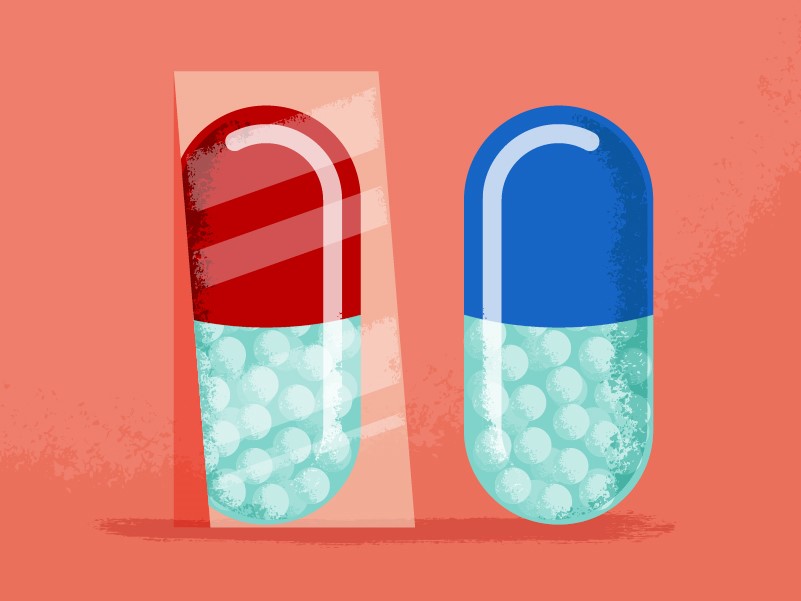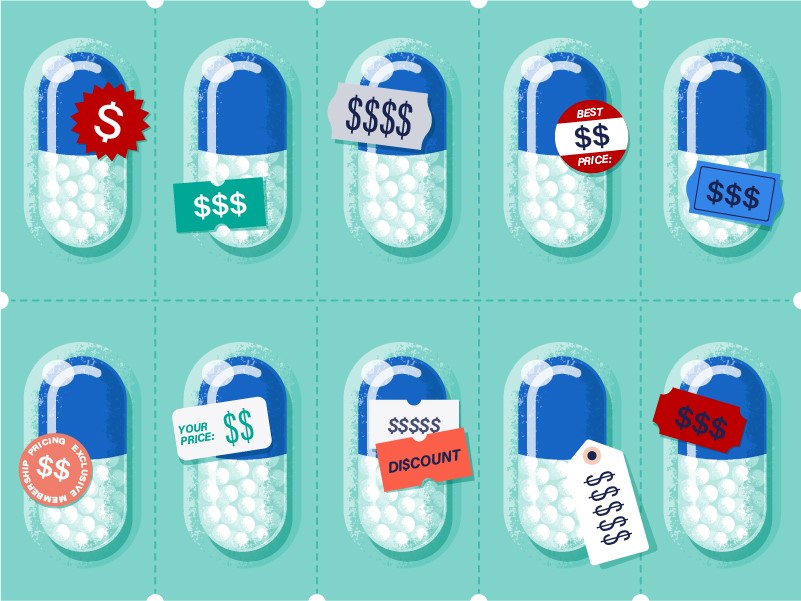Are We Doomed to Repeat Our COVID-19 Mistakes? Not So Fast, Says Initiative
Also featured: Superstores hurdle into healthcare, plus tips for cold and flu season

Editor’s note: Welcome to The PostScript Rewind, a biweekly recap of the latest in healthcare news. Featuring what you need to know — none of what you don’t.
Some heavy-hitters are joining forces to help the world brace for a future pandemic.
Google, Optum and Microsoft are teaming up with leading universities and foundations on a $13-million initiative. The Trinity Challenge aims to use data from the COVID-19 response to explore new ideas in case of another global health emergency.
Funding will recognize innovations in areas like economics, behavioral sciences and epidemiology, with ideas to protect health and economic systems.
“There is a necessity for cross-sector collaboration in response to this pandemic and preparing for the next one. And, we know there will be another one, the question is only when,” said Sally Davies, master of Trinity College at the University of Cambridge and former chief medical officer of England, during the HTLH 2020 virtual conference Monday.
“We have choices to make — do we respond to the here and now, and or do we work to prepare for the long term? We have a responsibility to turn this health emergency into an opportunity.”
Potential proactive solutions could include early-warning systems and technologies that could identify threatening pathogens before they cause great harm. Researchers could also focus efforts on recovery solutions that could help address the disproportionate health and economic impacts of pandemics, particularly on vulnerable groups.
Founders of the challenge include the Bill & Melinda Gates Foundation, Facebook, Tencent, GlaxoSmithKline, Cambridge University, Imperial College London and Northeastern University.
In other pandemic-related news:
• Some companies are finding it puzzling to forecast upcoming health-benefit costs. That’s because employees deferred medical care during the pandemic, causing uncertainty about how much will be needed in the future.
• The quest for a COVID-19 vaccine was recently stymied when two companies paused their clinical trials. Johnson & Johnson and Eli Lily are investigating safety concerns. Such hiccups in drug trials, though, are not uncommon.
Superstores: Retail giants hurdle into healthcare
• Rite Aid is setting the stage for its “stores of the future,” where pharmacists will have a starring role.
The brand relaunch will feature pharmacies that look more like an Apple Store, virtual care rooms and new products focusing on traditional and alternative treatments.
• Walgreens plans to build hundreds of primary care clinics next to its drug stores — thanks to a $1-billion partnership with VillageMD. The plans may have gotten off to a slow start, but that’s about to change. The company aims to open 40 locations next year. Previously, it had forecast 500 clinics in five years.
• Technology powerhouse Apple continues to make bold forays into healthcare. Recent moves include a blood-oxygen sensor on its Apple Watch and a wellness-related partnership with the Singapore government.
But the innovations blur the lines between wellness and medicine, and Apple is facing new FDA regulations.
Rise in ‘smart technology’
• United Healthcare sees opportunity ahead for its therapeutics capabilities. That announcement comes on the heels of its digital-therapy platform, announced in July, for patients with Type 2 diabetes.
The Level2 service includes digital tracking devices, one-on-one coaching and insights driven by artificial intelligence. The company says to expect more digital therapeutics coming up.
• Enhancing the use of AI in healthcare via a confidential computing platform is the goal of a new collaboration headed by Microsoft Azure. The partners also include UC San Francisco’s Center for Digital Health Innovation, Fortanix and Intel.
VA care gets upgrade
New-and-improved EHR systems are set to launch in the coming weeks for the Department of Defense and the Department of Veterans Affairs.
The upgrade is boosted by more than $21 billion from the Federal Electronic Health Record Modernization program. It aims to increase interoperability and improve patient care.
Rx tip of the week
Much of our focus this year has turned to COVID-19, but don’t forget about the influenza (flu) virus! With complications potentially leading to hospitalizations or even being life threatening, the flu vaccine is more important than ever this year.
According to the CDC, the annual flu vaccine is recommended for everyone 6 months or older with rare exceptions. Knowing that the flu vaccine usually takes about two weeks after administration for the body to develop antibodies and protection, the CDC notes that September and October are good times to be vaccinated.
With that said, vaccines should continue as long as the virus is spreading, so at this point in the year, getting you and your family vaccinated as soon as possible is ideal.
—Eric Wu, ScriptHero clinical pharmacist
This article is intended for informational purposes only and not intended to be medical advice, nor does it replace professional medical advice, diagnosis, or treatment. If you have any healthcare questions, please seek the advice of your physician or other qualified healthcare provider. If you are experiencing a medical emergency, call your physician or dial 911 immediately.
Not feeling so hot? Your pharmacist may be able to help answer common questions around potential flu, cold and COVID-19 symptoms.
Learn MoreThis article was last updated October 27, 2020





